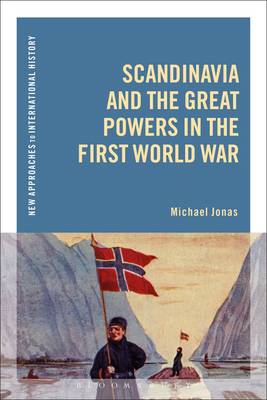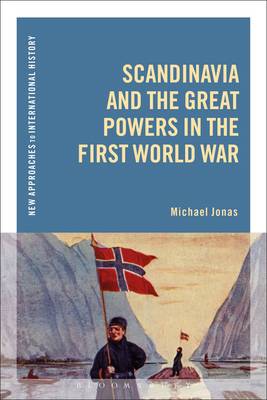
- Afhalen na 1 uur in een winkel met voorraad
- Gratis thuislevering in België vanaf € 30
- Ruim aanbod met 7 miljoen producten
- Afhalen na 1 uur in een winkel met voorraad
- Gratis thuislevering in België vanaf € 30
- Ruim aanbod met 7 miljoen producten
Zoeken
Scandinavia and the Great Powers in the First World War
Michael Jonas
€ 79,95
+ 159 punten
Uitvoering
Omschrijving
This study is among the first works in English to comprehensively address the Scandinavian First World War experience in the larger international context of the war. It surveys the complex relationship between the belligerent great powers and Northern Europe's neutral small states in times of crisis and war.
The book's overreaching rationale draws upon three underlying conceptual fields: neutrality and international law, hegemony and great power politics as well as diplomacy and policy-making of small states in the international arena. From a variety of angles, it examines the question of how neutrality was understood and perceived, negotiated and dealt with both among the Scandinavian states and the belligerent major powers, especially Britain, Germany and Russia. For a long time, the experience of neutral countries during the First World War was seen as marginal, and was overshadowed by the experiences of occupation and collaboration brought about by the Second World War. In this book, Jonas demonstrates how this perception has changed, with neutrality becoming an integral part of the multiple narratives of the First World War. It is an important contribution to the international history of the First World War, cultural-historically influenced approaches to diplomatic history and the growing area of neutrality studies.Specificaties
Betrokkenen
- Auteur(s):
- Uitgeverij:
Inhoud
- Aantal bladzijden:
- 248
- Taal:
- Engels
- Reeks:
Eigenschappen
- Productcode (EAN):
- 9781350178250
- Verschijningsdatum:
- 20/08/2020
- Uitvoering:
- Paperback
- Formaat:
- Trade paperback (VS)
- Afmetingen:
- 156 mm x 234 mm
- Gewicht:
- 344 g

Alleen bij Standaard Boekhandel
+ 159 punten op je klantenkaart van Standaard Boekhandel
Beoordelingen
We publiceren alleen reviews die voldoen aan de voorwaarden voor reviews. Bekijk onze voorwaarden voor reviews.







